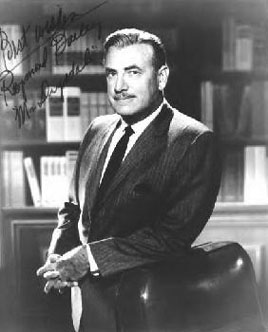Brownback is a lawyer and not the dumbest guy in Congress, but as public intellectual credentials go, not only is he no Daniel Patrick Moynahan, he's not even Newt Gingrich. Whatever good it may do him politically, the column is an intellectual muddle.
First, Brownback sets the stage by asserting "the complexity of the interaction between science, faith and reason." That's a nice touch, actually. The problem is that "faith" is a very ambiguous term. Faith of what sort and in what, exactly? We might reasonably claim that scientists, themselves, have faith in reason (and in evidence and so forth), but it is certainly not the sort of faith of which Brownback writes. What he means to imply but does not outright say is faith in the truth of certain specific doctrinal beliefs he happens to hold to be true, so it isn't the existence or nonexistence of faith, per se, that is at issue here but faith as belief in the correctness of certain substantive claims. Brownback writes:
The heart of the issue is that we cannot drive a wedge between faith and reason. I believe wholeheartedly that there cannot be any contradiction between the two. The scientific method, based on reason, seeks to discover truths about the nature of the created order and how it operates, whereas faith deals with spiritual truths. The truths of science and faith are complementary: they deal with very different questions, but they do not contradict each other because the spiritual order and the material order were created by the same God.
Let's dissect that. Why can't we "drive a wedge between faith [as Brownback understands it] and reason"? Because he wholeheartedly believes they cannot be contradictory? Why is that? Here he starts out reasonably well, noting that science and (Brownback's) faith address different questions; namely, questions about how nature operates and what he calls "spiritual truths." That's not so bad so far. If he had gone on to claim that their areas of concern were not complementary but incommensurable or merely that they bore no relationship to each other at all, rather like, say, there is no overlap between questions about auto mechanics and questions about music, I'd gladly agree with him. But he doesn't. What he does instead is simply assert his belief in God's agency. I don't happen to disagree with that belief as such, but the belief itself is no evidence or argument that scientific assertions and theological assertions cannot or do not contradict each other. As Brownback states it, it is merely a conclusion, an assertion of faith, actually, without any supporting argument or evidence. Viewed as an purported argument, it is entirely question begging.
Brownback then shifts from the notion that science and faith are complementary to the notion that faith supplements the scientific method "by providing an understanding of values, meaning and purpose." Certainly, religious beliefs can provide a context for and even, insofar as they are believed, a rationale for one's values, etc. But they are not the only possible such contexts or rationales, nor is it at all clear how any of these things supplements the scientific method any more than my discussing jazz with my mechanic supplements his ability to fix my car. What Brownback might have said is that, just as a knowledge of both mechanics and jazz lead to a fuller life, a life focused only on the sorts of questions science can answer is a less full life than one that includes other concerns. But that isn't what he said and what he did say, insofar as it is intelligible, is false.
Brownback tips his hand when he writes, "If belief in evolution means simply assenting to microevolution, small changes over time within a species, I am happy to say, as I have in the past, that I believe it to be true." Implicit in this statement is that he does not believe, in particular, that our species evolved from other species (whether accidentally or not). This, of course, belies his purported belief that science and faith do not contradict each other, but we'll let that alone for now.
He goes on with the fairly typical Intelligent Design gambit of dropping the punctuated equilibrium hypothesis as evidence that real scientific questions remain unanswered in evolutionary theory. As others have written extensively, this is both true and irrelevant. What is especially relevant is Brownback's rejection of "arguments for evolution that dismiss the possibility of divine causality." This is the real heart of the matter and Brownback gets it exactly wrong.
I don't know a single scientist who believes as a matter of science that divine causality is impossible. I know some who do entirely reject the notion of divine causality as I know some who believe in it, but in neither case are they making a scientific claim and in neither case are their views at all relevant to evolutionary theory. The critical point here is that as far as the science of evolutionary theory is concerned, (1) its working hypothesis that divine causation is not necessary to explain how nature works has so far proved successful and (2) it is impossible, in any case, to either verify or falsify divine causation as we have come to understand what that assertion entails. I note, in passing, that some would claim the assertion is unintelligible or incoherent and, thus, incapable of being either true or false, but we'll leave that for another time.
Let's return to my mechanic friend who does not want to discuss why Miles Davis was one of the all time jazz greats but wants me to understand, instead, why I should get the oil changed regularly in my car and so explains how internal combustion engines work. He describes the pistons moving up in their cylinders, compressing gas vapors, then how the vapors are ignited, causing a controlled explosion pushing those pistons back down and, at the same time others on the crankshaft up, etc. He describes how the gears and such transfer that power from the rotating drive shaft to turn the wheels and so forth and why, therefore, the engine must be properly lubricated. Let's pretend I follow him but insist at every point in his explanation that this all happens because my personal deity, Mechano, makes it happen.
My mechanic, a more philosophically astute fellow than most politicians, points out to me that, while Mechano may indeed be the unseen force behind the workings of engines and motors, he does not need to believe in Mechano's existence to understand or to repair automobile engines. Maybe he does believe in Mechano, but none of the repair manuals and none of his training and experience have mentioned Mechano. In that sense, neither my nor his beliefs one way or the other about Mechano either complement or supplement his work. Whether they complement or supplement his or my life outside the area of auto repairs is another matter. Maybe they do, maybe they don't. In any case, this is the rough equivalent to evolutionary theory vis a vis Sen. Brownback's faith and this is why, again only roughly speaking, efforts to include non-evolutionary accounts of the origin of man in biology class curricula are met with the same sort of reaction I would get if I tried to pressure General Motors to include a chapter on Mechano in their service manuals.
There are any number of other problems with Brownback's column, but I'll just make one final point. He writes, "While no stone should be left unturned in seeking to discover the nature of man’s origins, we can say with conviction that we know with certainty at least part of the outcome. Man was not an accident and reflects an image and likeness unique in the created order."
Whether the final sentence of that claim is true or not, it is worth noting that one can be certain in one's convictions but nonetheless entirely wrong.
* * * * *
P.S. -- John Derbyshire likens Brownback on evolutionary biology to Paris Hilton on partial differential equations. The Derb goes on, as I did not, to do a nice job of tearing apart the implicit "science" of Brownback's weaseling over "micro" versus "macro" evolution.












